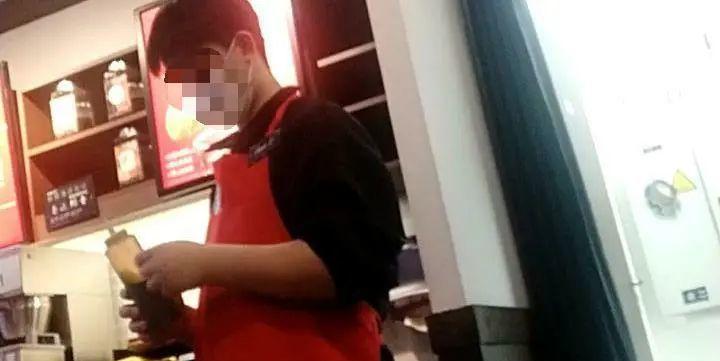Reporter undercover Starbucks: Expired ingredients continue to sell, the shelf life is arbitrarily changed, and the scrapped pastries are put on the shelves the next day
According to the Beijing News, the reporter recently undercover investigation in two Starbucks stores in Wuxi Found that under the so-called "gold standard", some stores touched the red line of food safety: the ingredients continued to be used after expiration, and they were sold as a variety of best-selling drinks; the supervisor and the clerk "taught by example" to tamper with the shelf life, and some ingredients were artificially "extended" for a week; the pastries that promised to "stay overnight after opening" were secretly put on the shelves the next day.
On the afternoon of November 7, an undercover reporter saw that a pot of black tea liquid placed on the bar was not labeled with shelf life, and a clerk who made drinks at the bar explained to reporters the reason, "Because it has expired, I tore off the label." In order to "cover" the use of expired ingredients, the shelf life labels of some ingredients are often tampered with at will.
On November 21, the reporter went undercover in the Starbucks Wuxi Changxing Building store and found that the cocoa fragments used to make "Star Ice" in the store had expired. Shelf life label information shows that it was opened on November 14 and expired on November 20, but the duty supervisor did not scrap it after finding it, but tore off the shelf life label and directly replaced it with a new label. The new shelf life label shows that its expiration date has been delayed by a full week.

On November 6, at the Starbucks Wuxi Zhenze Road store, a clerk was tampering with shelf life information, only to see him tear off the old label and put a new label on it, and the matcha liquid that was supposed to expire was artificially extended. Source: Beijing News
The reporter went undercover in the Starbucks Wuxi Changxing Building store for many days and found that Some of Starbucks's pastries were finished products distributed by manufacturers, and could not be stored for a long time after opening, but the store would secretly put the remaining pastries from the previous day on the counter almost every day. When the superior management department of the store arrives at the store for inspection, the duty supervisor signals the clerk to replace the shelf life label of the raw material in time. Why not scrap expired ingredients in a timely manner? A Starbucks employee explained, "If the ingredients that can't be used are scrapped, even if the cost in the store, these things are spent in the store." ”
It is understood that Starbucks has more than 5,100 directly operated stores in more than 200 cities in China, and also gave a commitment on the official website: "Based on the highest industry standards, develop and strictly implement Starbucks food safety gold standards." ”
Starbucks' latest response: 2 stores are closed
On the morning of December 13, Starbucks China's official Weibo responded that it had paid attention to reports about two Starbucks stores in Wuxi. Deeply shocked by the food safety issues covered in the report. This incident, highly concerned, has closed the two stores at the first time, and immediately launched an in-depth investigation.
Source: Beijing News, @Starbucks China, Jingchu Network